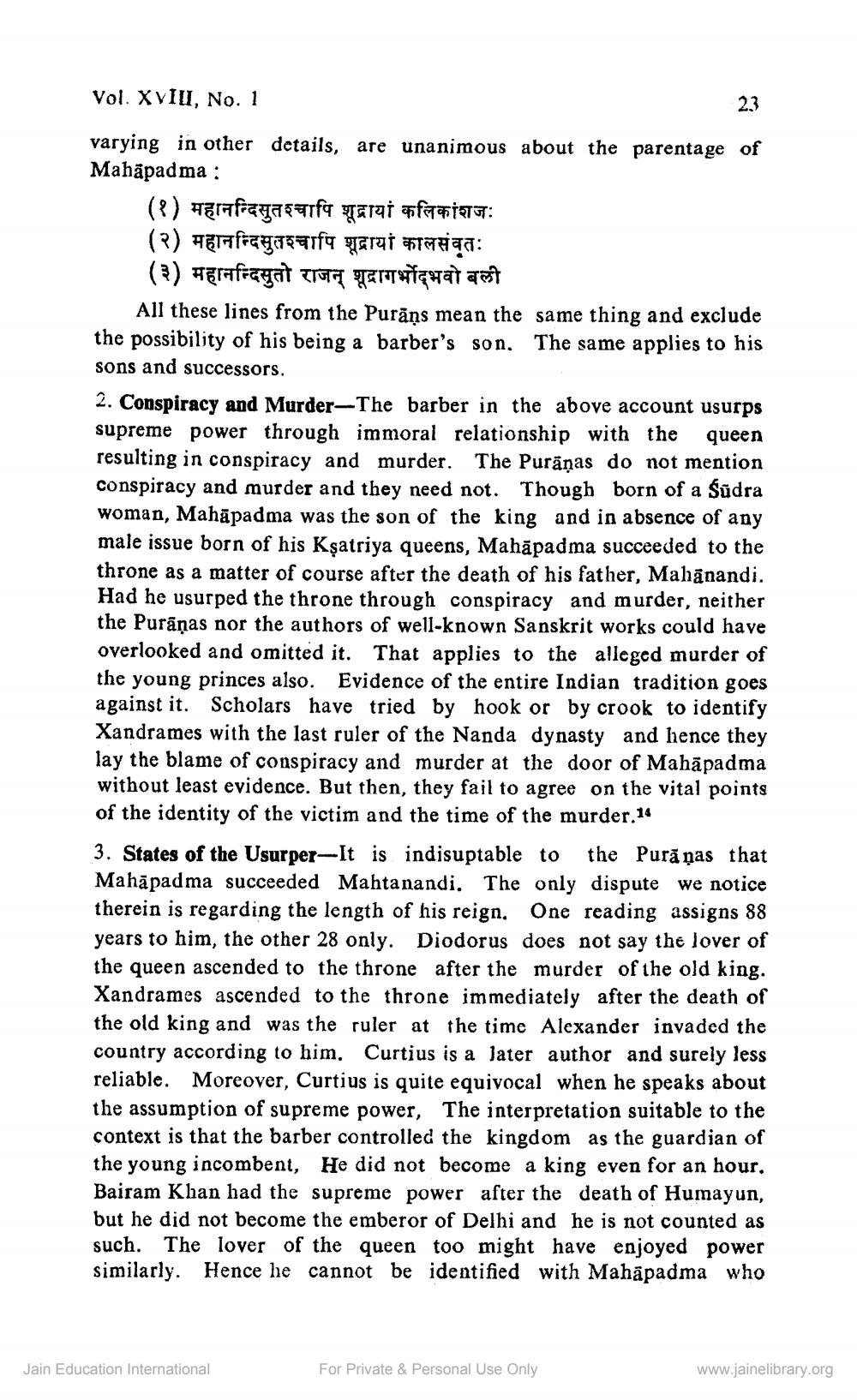________________
Vol. XVIU, No. 1
23
varying in other details, are unanimous about the parentage of Mahāpadma :
(१) महानन्दिसुतश्चापि शूद्रायां कलिकांशजः (२) महानन्दिसुतश्चापि शूद्रायां कालसंवृतः (३) महानन्दिसुतो राजन् शूद्रागर्भोद्भवो बली
All these lines from the Purāns mean the same thing and exclude the possibility of his being a barber's son. The same applies to his sons and successors. 2. Conspiracy and Murder-The barber in the above account usurps supreme power through immoral relationship with the queen resulting in conspiracy and murder. The Purāņas do not mention conspiracy and murder and they need not. Though born of a Sūdra woman, Mahāpadma was the son of the king and in absence of any male issue born of his Kşatriya queens, Mahāpadma succeeded to the throne as a matter of course after the death of his father, Mahānandi. Had he usurped the throne through conspiracy and murder, neither the Purāņas nor the authors of well-known Sanskrit works could have overlooked and omitted it. That applies to the alleged murder of the young princes also. Evidence of the entire Indian tradition goes against it. Scholars have tried by hook or by crook to identify Xandrames with the last ruler of the Nanda dynasty and hence they lay the blame of conspiracy and murder at the door of Mahāpadma without least evidence. But then, they fail to agree on the vital points of the identity of the victim and the time of the murder.14 3. States of the Usurper-It is indisuptable to the Purā ņas that Mahāpadma succeeded Mahtanandi. The only dispute we notice therein is regarding the length of his reign. One reading assigns 88 years to him, the other 28 only. Diodorus does not say the lover of the queen ascended to the throne after the murder of the old king. Xandrames ascended to the throne immediately after the death of the old king and was the ruler at the time Alexander invaded the country according to him. Curtius is a later author and surely less reliable. Moreover, Curtius is quite equivocal when he speaks about the assumption of supreme power, The interpretation suitable to the context is that the barber controlled the kingdom as the guardian of the young incombent, He did not become a king even for an hour. Bairam Khan had the supreme power after the death of Humayun, but he did not become the emberor of Delhi and he is not counted as such. The lover of the queen too might have enjoyed power similarly. Hence he cannot be identified with Mahāpadma who
Jain Education International
For Private & Personal Use Only
www.jainelibrary.org




